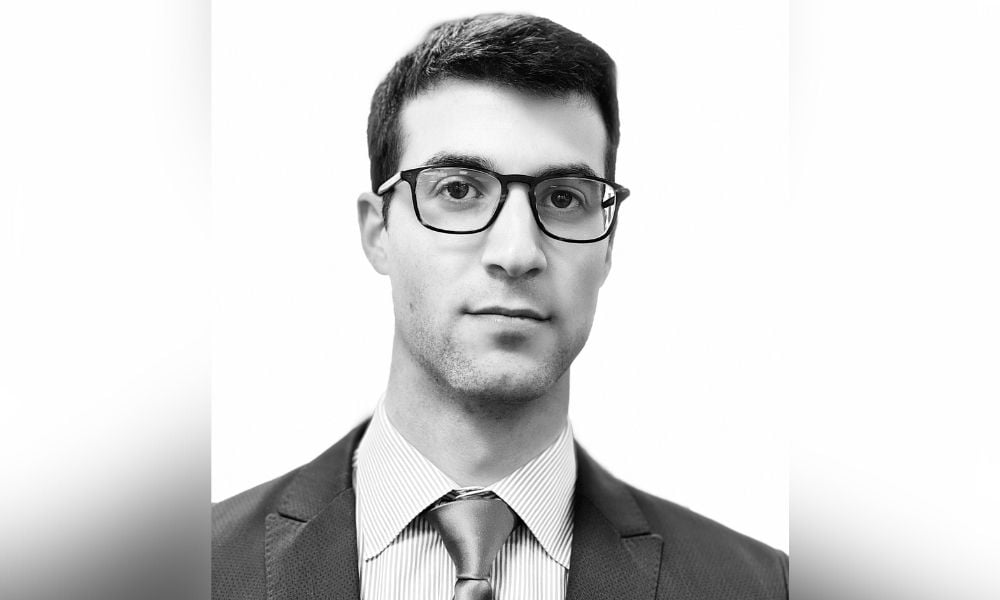
COVID has accelerated technological adoption by decades, says Sean Bernstein

Since law school, legal-tech entrepreneur Sean Bernstein has been captivated by alternative ways of doing the business of law. With lawyers now hermitized by COVID, he is seeing many of those alternatives now increasingly being viewed as necessities.
Bernstein co-founded the cloud-based legal entity management software MinuteBox, in 2017. For legal tech software, the pandemic has bolstered business, with legal organizations forced to realize the advantages of cloud-based access to information. Before, while presenting their product to law firms, the common, apprehensive reply was that “someone will always be at the office to get us the information that we need,” says Bernstein.
“Well, it turns out, in COVID times that’s the one thing they couldn't do. And as a result, their clients suffered, their work product was delayed and they couldn't deliver what was necessary in order for them to be able to have a good legal practice.”
COVID has accelerated technological adoption to a point that would have taken decades had it developed organically, Bernstein says. Normalcy may bring a slowdown, but he expects the forward momentum to be maintained.
Currently, lawyers and law firms are looking toward document automation and are taking stock of their document management systems, he says. Many national and international firms are using different products in different jurisdictions and are now working toward uniformity among platforms. Larger organizations are increasingly seeking out jurisdiction-agnostic tools which operate in different languages, says Bernstein.
“There is now the belief that things not only should change but need to change and that feeling is coming not just from legal innovators as much but also from the law firms, recognizing that in every circumstance, service needs to be delivered in different ways,” he says. “And in many ways, needs to be delivered in a better way to ensure the client experience.”
Originally from Montreal, Bernstein attended McGill Law and took a joint MBA program. Jumping between the law faculty and the business school, he got a window into both worlds. Merging the two, he took a deep dive into alternative business structures in law, choosing the topic for a research project he needed to complete to graduate.
It was late 2013 and early 2014 and his research familiarized him with the business considerations which surround a legal practice – law firm structures, partner compensation and brand building, for example. Alternative business structures are used in Australia, the UK and parts of the U.S. and Bernstein compared those experiences, as well as that of investment banks in the ‘70s, ‘80s and ‘90s which similarly transitioned from a partnership to a publicly traded model. Looked at from a business policy and legal perspective, Bernstein believes there is a strong case to be made that they could be allowed in Canadian jurisdictions in the future.
Bernstein wanted to work at a large firm, either on Wall Street or Bay Street, and ultimately began his career at Osler Hoskin and Harcourt LLP, but soon felt it was not the right fit.
“I found that I wasn't so passionate about what I did as a corporate lawyer. It was enjoyable. It had its good times, and I was certainly working at a great environment. But I found myself far more connected to the business side of the practice,” he says. “The direct connection with the clients, ensuring high levels of profitability and also the pieces of technology that I was using in order to deliver service to clients, all of that – to me – was absolutely fascinating.”
Entrepreneurship was not Bernstein’s preferred destination. He had more a mind to be a legal-technology architect, working at a law firm and focused on implementing new technology to enhance the practice and project management.
“All of those things, to me, were brand new as concepts. But I was just a little bit early, because about a year or two later, those jobs started becoming more prominent in the Canadian marketplace,” he says.
Having networked extensively throughout his young career, Bernstein was introduced to his MinuteBox co-founders Daniel Levine and Steven Pulver. They too were lawyers with technological backgrounds and “interested in making changes,” he says.
The late nights combing through physical minute books had him thinking there must be a better way to work with corporate entities.
“Rather than just having 40, 50, 60 binders in my office, the thought of just being able to click Ctrl-F and finding information, would both save the client money, and save my sanity.”
Bernstein, Levine and Pulver started MinuteBox in 2017. Chief Technology Officer Brian Hunt joined them the next year.
“The business has grown exponentially,” he says. “Especially from where we started… And now to be recognized as one of the leaders in entity management in the country.”
Cementing its position in the Canadian market was the “first hurdle,” and Bernstein says the company continues to grow and roll out new tools and features, with the intention of expanding its services globally, “when the time is right.”